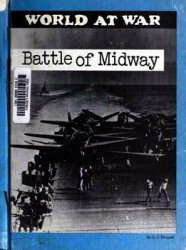• The road to Philadelphia included the meetings at Mount Vernon and Annapolis.
• Daniel Shays's rebellion in Massachusetts underscored the need for a stronger national authority.
• The Founding Fathers in Philadelphia were a gathering of "demigods."
• They created a federal system with firm national power.
• Debate over the Virginia and New Jersey Plans led to the Connecticut Compromise.
• Madison's role as "Father of the Constitution" is a well-deserved epithet.
• The 3/5 Compromise postponed more serious consideration of slavery.
Commentary on the Constitution:
"The United States of America have exhibited, perhaps, the first example of governments erected on the simple principles of nature; and if men are now sufficiently enlightened to disabuse themselves of artifice, imposture, hypocrisy, and superstition, they will consider this event as an era in their history. Although the detail of the formation of the American governments is at present little known or regarded either in Europe or in America, it may hereafter become an object of curiosity. It will never be pretended that any persons employed in that service had interviews with the gods, or were in any degree under the influence of Heaven, more than those at work upon ships or houses, or laboring in merchandise or agriculture; it will forever be acknowledged that these governments were contrived merely by the use of reason and the senses." —John Adams "This country, with its institutions, belongs to the people who inhabit it. Whenever they shall grow weary of the existing government, they can exercise their Constitutional right of amending it or their revolutionary right to dismember it or overthrow it." - Abraham Lincoln
"The makers of our constitution undertook to secure conditions favorable to the pursuit of happiness. . They sought to protect Americans in their beliefs, their thoughts, their emotions and their sensations. They conferred, as against the government, the right to be let alone - the most comprehensive of the rights and the right most valued by civilized men." - Supreme Court Justice Louis D. Brandeis
"Yes, we did produce a near-perfect republic. But will they keep it? Or will they, in the enjoyment of plenty, lose the memory of freedom? Material abundance without character is the path of destruction." —Thomas Jefferson
"The preservation of the sacred fire of liberty, and the destiny of the republican model of government, are justly considered deeply, perhaps as finally, staked on the experiment entrusted to the hands of the American people." —George Washington
Outside Independence Hall when the Constitutional Convention of 1787 ended, Mrs. Powel of Philadelphia asked Benjamin Franklin, "Well, Doctor, what have we got, a republic or a monarchy?" With no hesitation whatsoever, Franklin responded, "A republic, if you can keep it."

"Scene at the Signing of the Constitution of the United States" by Howard Chandler Christy
—Library of Congress




 World History
World History









